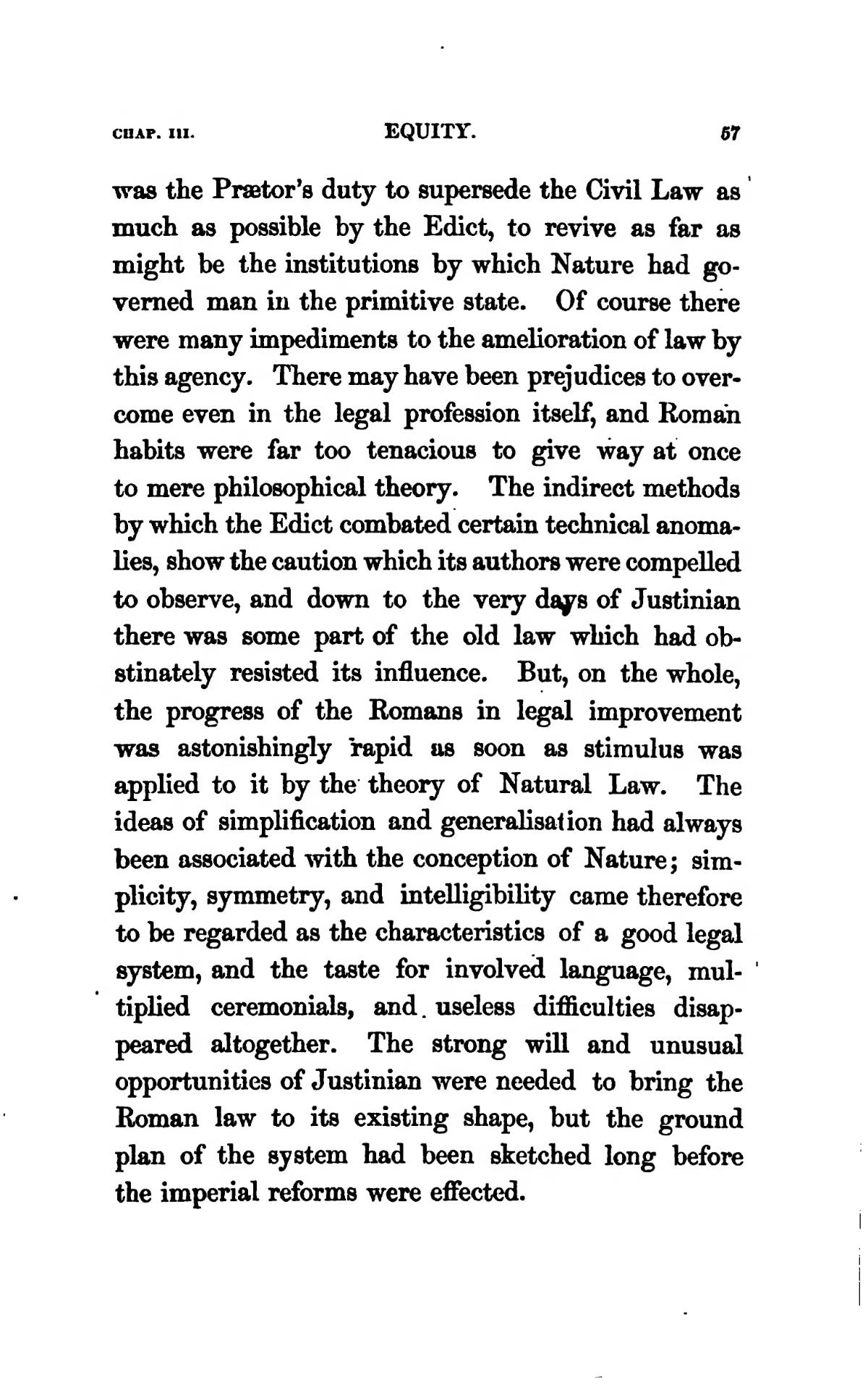was the Prætor's duty to supersede the Civil Law as much as possible by the Edict, to revive as far as might be the institutions by which Nature had governed man in the primitive state. Of course, there were many impediments to the amelioration of law by this agency. There may have been prejudices to overcome even in the legal profession itself, and Roman habits were far too tenacious to give way at once to mere philosophical theory. The indirect methods by which the Edict combated certain technical anomalies, show the caution which its authors were compelled to observe, and down to the very days of Justinian there was some part of the old law which had obstinately resisted its influence. But, on the whole, the progress of the Romans in legal improvement was astonishingly rapid as soon as stimulus was applied to it by the theory of Natural Law. The ideas of simplification and generalisation had always been associated with the conception of Nature; simplicity, symmetry, and intelligibility came therefore to be regarded as the characteristics of a good legal system, and the taste for involved language, multiplied ceremonials, and useless difficulties disappeared altogether. The strong will and unusual opportunities of Justinian were needed to bring the Roman law to its existing shape, but the ground plan of the system had been sketched long before the imperial reforms were effected.
